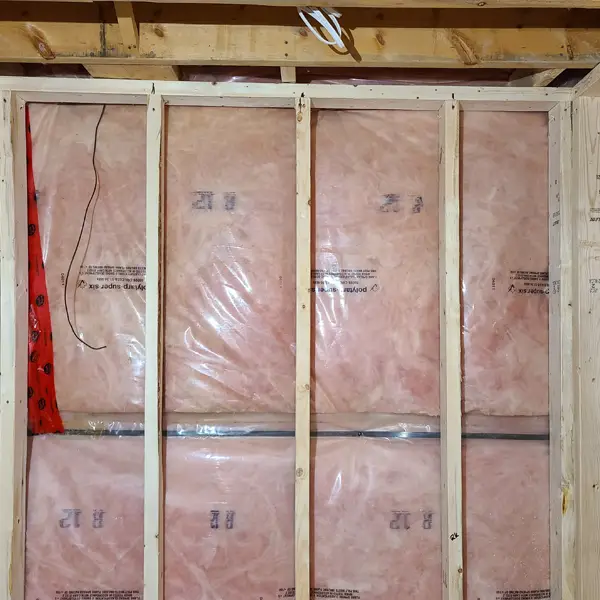Homebuilders do not insulate interior walls because these walls do not provide any heating or thermal benefits to interior rooms. Interior wall insulation can be costly and labor intensive, so most builders do not insulate the interior walls.
In most cases, interior walls in the home will be shared between two heated rooms. For example, this could be a bedroom and another bedroom or bathroom. These walls will not require extra insulation, as the temperature will relatively be the same in both rooms.
However, if an interior wall of the house is shared with a cool room or garage – the wall will contain insulation. A cool room would have a different temperature when compared to a bedroom or living space inside the home.
Insulation can be found at varying price ranges because there are different types available. You can have spray foam insulation completed by a professional, or have batt insulation. There are reputable brands offering high-quality mineral wool fire and soundproofing insulation.
Why Insulate Interior Walls?
Some people choose to insulate their interior walls because of acoustics and soundproofing. When you want to make sure noise does not easily travel between walls – you could consider the benefits of insulating your interior walls. To limit the expense of insulation, you could choose specific walls that would contain insulation.
If you require sound-dampening in your home, you should consider the benefits of insulation in interior walls.
In most communities, there are building code regulations that require insulation for all exterior walls. Without it, there will be an incredible amount of heat loss, which results in high heating costs. All homebuilders will follow these building codes to ensure their builds will pass building inspection.
In a new construction home, most large scale builders will outsource various trades to different sub-contractor companies. These individual companies have strict timelines that they need to meet. For this reason, mostly all new construction homes will not have interior wall insulation.

If you’ve ever lived in a new construction home, you would immediately realize how ineffective the sound-dampening is in these homes. With the lack of interior wall insulation coupled with thin drywall material – you can hear almost everything throughout the house.
A few homebuilders do allow their customers to upgrade certain structural elements in the home, such as the thickness of the drywall. With a thicker drywall, you’re able to slightly increase the soundproofing acoustics between bedrooms.
How Do You Know if an Exterior Wall Has No Insulation?
The easiest way to identify an exterior wall without proper insulation is by touching the wall. If the wall is much more colder than the other walls; it could mean the insulation is poor or non-existent.
Additionally, when the floors are cold or if the temperature is different in various rooms of the house – it could mean that there is poor insulation on the exterior walls.
If an exterior wall is missing insulation or has poor insulation, your heating costs would definitely be higher during the colder winter months. Fortunately, some cities benefit from mild weather during the winter – so the need for insulation is quite minimal.
As someone who has lived in many new construction homes, I can say that I appreciate homes that have interior wall insulation. It can make a world of a difference in some homes!
While this isn’t a common new build home problem faced by most buyers, it is something you should definitely speak to your home builder about.